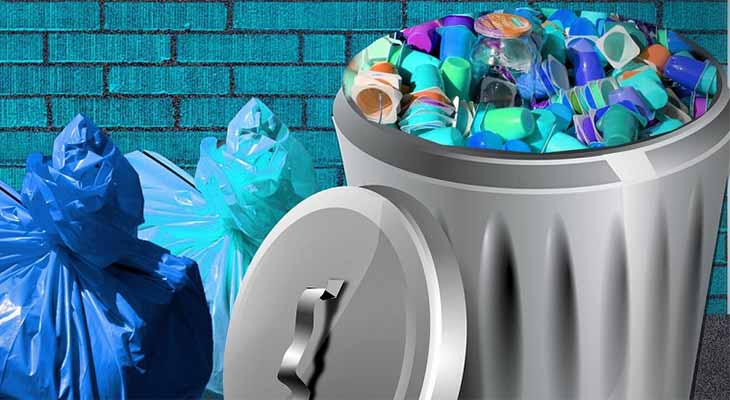What Is the Meaning of “Reduce, Reuse, Recycle”?
by Blake Harris
Posted on 02-01-2024 04:30 PM

Reduce, Reuse, Recycle, often referred to as the "3Rs," is a mantra that promotes sustainable waste management practices. It emphasises the need to reduce the amount of waste generated, reuse items whenever possible, and recycle materials to minimise their impact on the environment.
Sustainable waste management is crucial for maintaining the health of our planet. With the increasing population and consumption patterns, the amount of waste being generated has reached alarming levels.
Adopting sustainable waste management practices helps conserve resources, reduce pollution, and protect ecosystems. It also contributes to a cleaner and healthier environment for current and future generations.
Reduce
Reduction involves minimising the quantity of waste generated at its source. It focuses on reducing the consumption of resources and the creation of unnecessary waste.
Strategies for Reducing Waste
1. Minimising packaging
Opting for products with minimal packaging or choosing bulk items can significantly reduce waste. Avoiding single-use items like plastic bags and disposable cutlery also helps minimise waste generation.
2. Choosing durable products
Investing in durable products that are built to last reduces the need for frequent replacements. This not only reduces waste but also saves money in the long run.
3. Adopting a minimalist lifestyle
Embracing minimalism encourages a mindset shift towards valuing experiences and relationships over material possessions. By decluttering and only acquiring what is truly necessary, we can reduce waste and live more sustainably.
Reuse
Reusing involves finding new purposes for items that would otherwise be discarded. It extends the lifespan of products, reducing the demand for new resources and minimising waste.
Ways to Incorporate Reuse in Daily Life
1. Donating or selling unwanted items
Instead of throwing away unwanted items, consider donating them to charitable organisations or selling them to others who can use them. This way, someone else can benefit from the items, extending their life cycle.
2. Repurposing household items
Get creative and find alternative uses for items that might otherwise be thrown away. For example, glass jars can be used for storage, old t-shirts can be turned into rags, and furniture can be refurbished instead of being replaced.
3. Using refillable containers
Replace single-use containers with refillable ones for items such as cleaning products, toiletries, and beverages. This reduces packaging waste and promotes a more sustainable approach to consumption.
Recycle
Recycling involves converting waste materials into new products. It helps conserve resources, reduce energy consumption, and decrease the amount of waste sent to landfills.
Importance of Proper Recycling Practices
Proper recycling practices ensure that recyclable materials are processed correctly, minimising contamination and maximising the effectiveness of recycling efforts. By recycling, we can save energy, reduce greenhouse gas emissions, and conserve valuable natural resources.
Steps to Follow for Effective Recycling
1. Sorting and separating recyclables
Separate different types of recyclable materials such as paper, plastic, glass, and metal to ensure they can be recycled efficiently.
2. Knowing what can and cannot be recycled
Familiarise yourself with local recycling guidelines to understand which materials are accepted for recycling and which ones are not. This helps avoid contamination and ensures that the recycling process is effective.
3. Finding local recycling facilities
Locate nearby recycling centres or collection points to properly dispose of recyclable materials. Many communities offer curbside recycling programs for convenience.
Benefits of "Reduce, Reuse, Recycle"
Implementing the principles of Reduce, Reuse, and Recycle significantly reduces the environmental impact of waste. It helps conserve natural resources, reduce pollution associated with resource extraction and manufacturing, and minimise the amount of waste sent to landfills or incinerators.
By reducing consumption, reusing items, and recycling materials, we can conserve valuable resources such as water, energy, and raw materials.
This ensures their availability for future generations and promotes a more sustainable approach to resource management.
Reducing waste and increasing recycling rates also help alleviate the burden on landfills. Landfills contribute to greenhouse gas emissions and pose potential risks to human health and the environment.
By diverting waste from landfills through the 3Rs, we can reduce these negative impacts. Following the principles of Reduce, Reuse, Recycle is essential for a sustainable future.
It empowers individuals to take responsibility for their consumption patterns, reduces the strain on natural resources, and protects the environment for future generations. By embracing these practices, we can create a cleaner, healthier, and more sustainable world.
Final Thoughts
Reducing waste, reusing items, and recycling materials are crucial steps towards sustainable waste management. These practices help conserve resources, minimise pollution, and protect the environment.
Individuals must embrace sustainable waste management practices in their daily lives. By incorporating the 3Rs into our routines, we can make a significant impact on reducing waste and protecting the planet.
For more information and expert guidance on waste management, resource recovery, and recycling, check out the 4Rs of Waste Management article by Eco Resources. As a leader in waste management services, Eco Resources offers valuable insights and solutions to promote sustainable waste management practices across Western Australia.
Together, we can create a cleaner and more sustainable future.